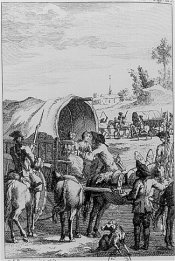
21 Jan 2007
PUCCINI: Manon Lescaut
Manon Lescaut, dramma lirico in quattro atti
Giacomo Puccini (1858-1924), composer. Luigi Illica and Domenico Oliva, librettists.
First performance: 1 February 1893 at Teatro Regio, Turin.
Andromaca: Dramma per musica in three acts.
Ermione: Azione tragica in two acts.
Ippolito ed Aricia: Tragedia in five acts.
Idomeneo: Opera seria in three acts.
Paride ed Elena: Dramma per musica in five acts.
Orphée: Opera in four acts.
Music composed by Christoph Willibald Gluck (arranged by Hector Berlioz, 1859). Libretto by Ranieri de' Calzabigi
Alceste, ou Le triomphe d’Alcide: Tragédie en musique in a prologue and five acts.
Alceste: Tragédie opéra in three acts.
Medea: Melodramma tragico in three acts.
Oedipe à Colone: Tragédie lyrique in three acts.
Elektra: Tragedy in one act.
Fedra: Dramma per musica in two acts.
Les Troyens: Grand opéra in five acts.
Die Meistersinger von Nürnberg: Music drama in three acts.
Ariadne auf Naxos, Oper with a prologue and one act. Music composed by Richard Strauss. Libretto by Hugo von Hofmannsthal.
Der Schauspieldirektor [The Impresario], Singspiel in one act, K486.
Divertimento teatrale in one act.
Andrea Chénier, an opera in four acts.
La figlia del reggimento [La Fille du régiment (‘The Daughter of the Regiment’)], Opéra comique in two acts.
L’elisir d’amore, Melodramma giocoso in two acts.

Manon Lescaut, dramma lirico in quattro atti
Giacomo Puccini (1858-1924), composer. Luigi Illica and Domenico Oliva, librettists.
First performance: 1 February 1893 at Teatro Regio, Turin.
Introduction
It may be difficult to believe, but in 1889 there was serious doubt whether Giacomo Puccini would succeed as a composer of operas. The premiere of Edgar met a cool, if not hostile, reception. It was canceled after three performances. In its original form — it was revised numerous times without success — Edgar followed the style of grand opera, a style that would be obliterated the following year with the performance of Mascagni’s Cavalleria rusticana, the first verismo opera. Further, Puccini was drawn to musical developments in Germany, particularly those of Wagner, the reception of which in Italy was mixed at best.
Puccini, with the backing of his publisher, Giulio Ricordi, pressed on. He proposed two operas — one based on Prévost’s novel Manon Lescaut and another on Sardou’s play Tosca. Sardou was unwilling to license his work to an unestablished composer; and Ricordi was reluctant to underwrite Manon Lescaut given the wide success of Massenet’s Manon that premiered in 1884. In any event, Puccini moved forward with the project. There were many difficulties in producing a libretto that met Puccini’s standards. Many hands contributed to the libretto, including Domenico Oliva, Marco Praga, Giulio Ricordi and Ruggero Leoncavallo. It was the introduction of Luigi Illica to the team that rescued the libretto.
The libretto, while more faithful to Prévost than Massenet’s work, sentimentalizes Manon and Des Grieux. The first act closely resembles that of Massenet’s Manon. The second act reduces the magnitude of Manon’s infidelities as portrayed by Prévost, yet captures her avarice. Des Grieux remains a lovestruck sap. The third act, which begins with an intermezzo, is dark, undoubtedly influenced by Wagner’s Tristan und Isolde, according to Julian Budden. The last act is a static setting that features only the final moments between Des Grieux and Manon.
Characters
| Dancing-Master | tenor |
| Edmondo, a student | tenor |
| Geronte di Ravoir, Treasurer-General | bass |
| Il cavaliere des Grieux, a student | tenor |
| Innkeeper | bass |
| Lamplighter | tenor |
| Lescaut, Manon’s brother, Sergeant of the Royal Guards | baritone |
| Manon Lescaut | soprano |
| Naval Captain | bass |
| Sergeant of the Royal Archers | bass |
| Singer | mezzo-soprano |
Synopsis
Act I
Young Manon Lescaut is very beautiful and attracts a great deal of attention. Des Grieux, a student, addresses her and falls in love with her. At first she is rather shy and withdrawn, as she is in the company of her brother. Geronte, a rich old man, also has his eye on her. He questions her brother, Lescaut, about the family circumstances and decides to abduct Manon. Des Grieux is warned by his friend Edmondo, who has overheard what Geronte is planning, and wastes no time in confessing to Manon that he is in love with her, a feeling which she reciprocates. The young couple flee. Lescaut comforts Geronte; he tells him that it will not be long before Manon comes to him as he knows how fond of luxury she is.
Act II
Lescaut’s plan has been successful. Manon has left Des Grieux, tired of living in modest circumstances, in favour of a more luxurious life with Geronte. In a conversation with her brother, however, she admits that in spite of her new-found wealth she has still not been able to find true happiness. When she meets Des Grieux again, the latter reproaches her for leaving him. She begs his forgiveness, entreating him to remember their love for each other. He again succumbs to her charms and Geronte returns to surprise the two lovers. Des Grieux urges Manon to flee with him immediately, but she lingers, wanting to keep some of Geronte’s wealth for herself. The couple learn from Lescaut that Geronte intends to have Manon arrested. Their attempt to escape fails.
Act III
Des Grieux and Lescaut have hatched a plan to rescue Manon from imprisonment, but the plan fails. Her disgrace is made public. Des Grieux remains loyal to her and stays at her side.
Act IV
Manon and Des Grieux remain alone. Manon dies.
[Synopsis courtesy of Bayerische Staatsoper]
Click here for the complete libretto.
Click her for an introduction to Abbé Prévost's Manon Lescaut